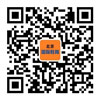|
★特殊疑问句:
What will you do?
6. 过去完成时:
用法:在过去的时间里,两个动作中,发生在前的哪个动作要用过去完成时。
结构:had+过去分词
After she had finished her homework, she went shopping.
They had sold the car before I asked the price.
The train had left before I arrived at the station.
After/before引导的时间状语从句放在句首要在句子后面加逗号,如果放在主句后则不用加。
5 变疑问句将助动词移到句首
Had she finished her homework?
6 变否定句在助动词后面加not
She hadn’t finished her homework.
7 肯定回答及否定回答
Yes, she had. No, she hadn’t.
8 特殊疑问句:
What had she done?
7. 过去进行时
表示过去正在进行的动作,经常用在when, while, as引导的状语从句中。
结构:was/were+doing
When my husband was going into the dining room this morning, he dropped some coins on the floor.
While we were having dinner, my father was watching TV.
8 过去将来时
结构:would do
She said she would go here the next morning.
3 特殊句型:there be 句型,be going to 结构
1. Be going to 结构
表示打算,准备,计划做某事
★结构:主语+be动词+going to +动词原型
I am going to make a bookcase.
They are going to paint it.
The father is going to give the bookcase to his daughter.
★变疑问句将be动词移到句首
Are you going to make a bookcase?
Are they going to paint it?
Is the father going to give the bookcase to his daughter?
★变否定句在be动词后面加not
I am not going to make a bookcase.
They are going to paint it.
The father is not going to give the bookcase to his daughter.
★肯定回答及否定回答
Yes, I am. No, I am not.
Yes, they are. No, they are not.
Yes, he is. No, he is not.
★特殊疑问句
What are you going to do?
What are they going to do?
What is the father going to do?
(必背)
2. There be 句型
表示哪里有什么东西(某处有某物)
2 There is+单数名词+表示场所的词(一般为介词词组)
There is a book in this room.
There is a pen on the table
5 There are+复数名词+表示场所的词(一般为介词词组)
There are two pens on the table.
There are three schools there.
|



